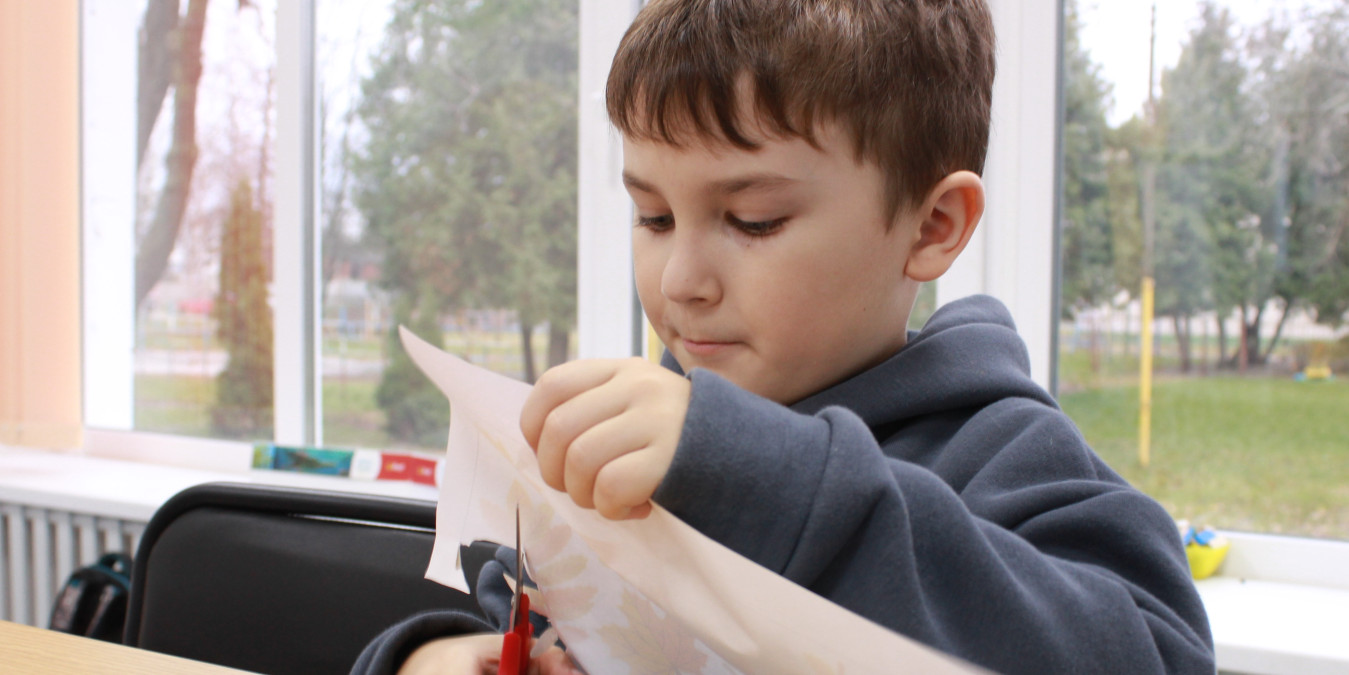The territory of a happy childhood
Published: Nov 20, 2023 Reading time: 4 minutes Share: Share an articleUkrainian children had to see firsthand what they had previously read about only in books and heard from their older relatives. Explosions, destruction, evacuation from hot spots, learning in the dark. Adults should help children go through this experience. Attending interesting classes and communicating with peers in a modern, safe space is one way to distract children from tragic events. On World Children's Day, we would like to share the atmosphere of one of our Be Smart digital learning centres in Ukraine. Come see how we support schoolchildren under challenging times.

Seven-year-old Nastia from Konotop has a particular tradition. Every Friday, she reminds her mother to sign her up for Be Smart Digital Learning Centre classes. No matter how hard the school day may be, the girl is always in a hurry to attend exciting workshops.
The Sumy Oblast suffered greatly at the beginning of the war. And communities in the north of the oblast still suffer from regular shelling. Due to constant anxiety, schoolchildren cannot study normally, and many do not have laptops to attend online lessons. That's why we opened digital learning centres in Sumy Oblast, with financial support from the European Union. Children can study remotely in 10 of these centres, do homework, and spend leisure time excitingly and productively. Visits to the centres, creative classes, and materials are free for the users.
In Konotop, Be Smart began working at School No. 9 in May. It consists of two separate classrooms with modern equipment. Next to the traditional student desks are soft pouffes where children can take a break from classes or chat with friends. The project team's guiding principle was the children's convenience, comfort, and cosiness.
The main activities take place after school. Today, three groups of children of different ages will be studying at the centre. Nastia and her peers are creating a colourful paper 3D umbrella.
In the corridor, Nastia's mother, Maryna, waits for her so they can go home together. With the outbreak of war, Maryna says, her daughter's anxiety level, like that of other Ukrainian children, has increased significantly. However, during the creative workshops, the girl is distracted from her troubling thoughts. Her mother gets an hour and a half of free time, which is worth its weight in gold for a woman who is always busy.
"In Konotop, most clubs are in the city centre; few are in our residential area. Nastia didn't find anything she liked. Here, she immersed herself in creativity to get out of the phone and TV. She is constantly sculpting something and never misses a single lesson," Maryna tells us happily.
The classes are led by facilitators Maryna Horobey and Kateryna Leonenko. They are trained specialists who stimulate children's development and create the necessary atmosphere conducive to their convenience, comfort, and cosiness. Workshop topics are selected depending on the age and preferences of the students. The students do various things: draw, read, watch movies, make jewellery, amulets, and toys. Maryna is a professional artist who helps students hone their skills. Her colleague is a teacher. Combining her new knowledge with her previous experience, Kateryna introduced the "Interesting History" course for children.
"My classes are not about 'sitting down', 'writing', 'checking' and that's it. I make presentations and look for interesting things. Maybe someone doesn't understand the school course or even hates history, which is full of dates. I want to make complex material comprehensible to change the child's perspective and help them become more successful," Kateryna says.
Filled with pleasant emotions, the creative lesson flies by very quickly. Upon completing their work, the students look for entertainment. The boys have a box with a board game, and the girls make something out of plasticine. At such moments, the facilitators say, children reveal themselves as individuals.
"These are difficult times. Many women, while their husbands are at war, have become sole leaders of their families. Moms have a lot to do but little time. It is not always possible to talk frankly with children eager to communicate. They trust us with their secrets and experiences and ask for advice. Such communication is precious to us," says Kateryna.
The parents we talked to say that the centres have a therapeutic effect. Children return from classes in a good mood; they are less anxious. And the number of handicrafts they bring home is so many that the shelves bend!



